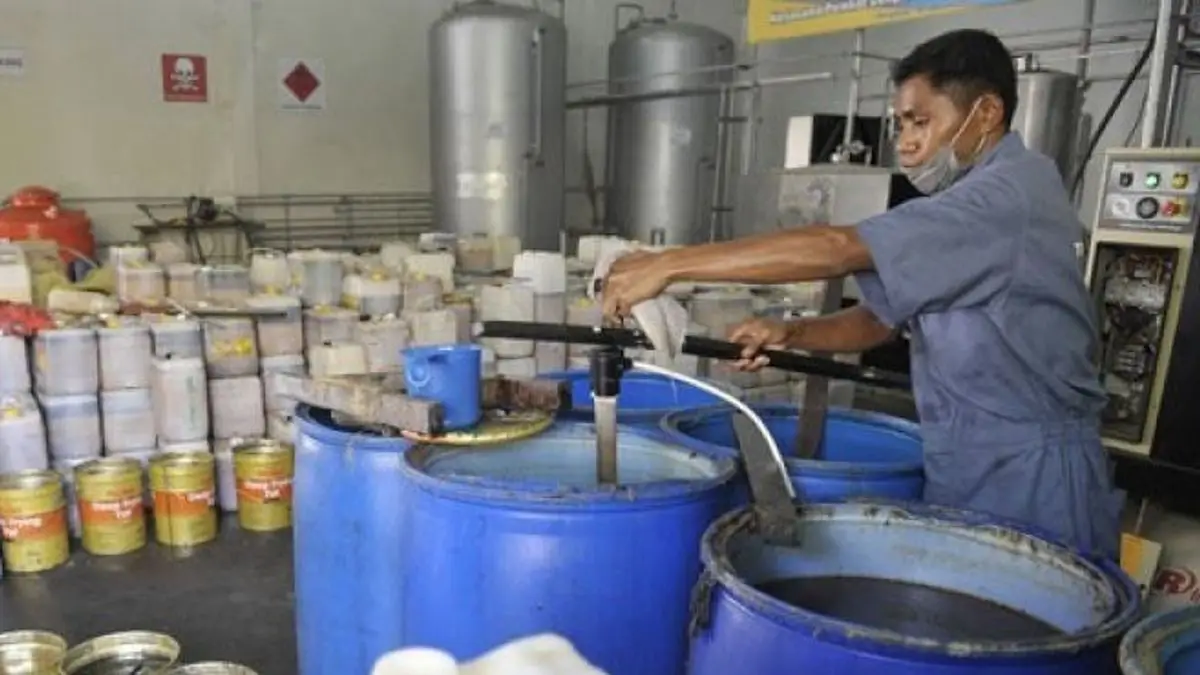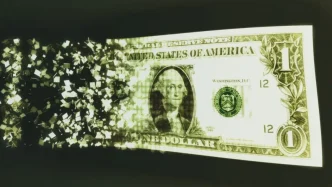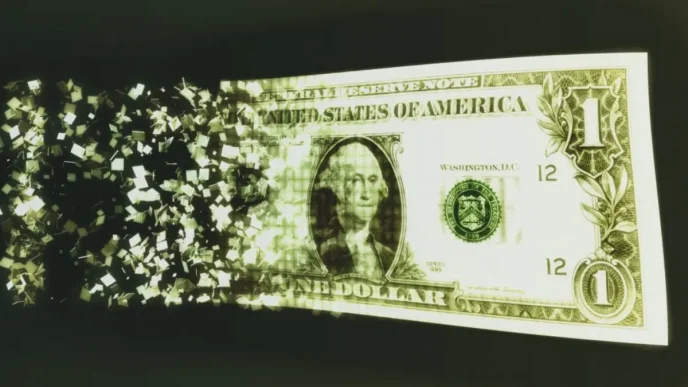In the bustling Tanjung Bungah public market in Penang, 59-year-old hawker Che Chin Seng carefully weighs his used cooking oil (UCO) for sale. His first transaction nets him RM33 (~US$7), a small but meaningful sum earned through honest means. Yet, as more Malaysians turn to selling UCO for extra income, concerns are mounting over fraudulent practices that threaten the integrity of this growing industry. With the government tightening oversight and stakeholders calling for transparency, Malaysia’s UCO market stands at a critical juncture.
Rising Trend, Rising Risks
The practice of selling UCO has gained traction across Malaysia as households and small vendors like Che Chin Seng seek to supplement their income. Used cooking oil, collected from homes, restaurants, and factories, is transformed into biodiesel, supporting global sustainability goals by converting waste into energy. However, this emerging market has attracted unscrupulous actors attempting to exploit the system by passing off new, unused oil as UCO, undermining both environmental objectives and market credibility.
Hillton Lee, co-founder of Recircle, a company facilitating recycling through a digital app, has encountered suspicious cases. “We have encountered a few suspicious cases in the past” Lee explained on July 17, 2025. “Some submissions clearly showed packaged or unused oil, raising immediate red flags” Recircle rejects such submissions to uphold industry regulations, emphasizing the importance of transparency in the buy-back system. “Attempting to pass off new oil as used undermines the sustainability goals we’re working to achieve” she added.
The financial incentive for fraud is clear. Subsidized cooking oil in Malaysia is sold at RM2.50 (~US$0.53) per kilogram, but some individuals attempt to resell it to UCO collectors for as much as RM3.50 (~US$0.75) per kilogram. This small profit margin, when scaled, becomes a tempting opportunity for misuse, especially given the bulk nature of UCO transactions.
Industry Challenges and Sustainability Goals
The UCO market plays a vital role in Malaysia’s commitment to sustainable energy. According to the Association of Used Cooking Oil Development Malaysia, UCO is typically sold in bulk to collectors who transport it to depots for pretreatment by licensed companies. It is then converted into biodiesel by manufacturers. The International Sustainability Carbon Certification (ISCC) highlights that UCO’s degraded properties make it ideal for specific biodiesel conversion processes. In contrast, virgin cooking oil is not classified as waste, and its use in biodiesel production competes with the food supply, increases land-use emissions, and counteracts the waste-to-energy purpose.
Distinguishing UCO from virgin oil, however, is not always straightforward. Dr. Chatichai Chong, chief marketing officer of Arus Oil, a licensed UCO collector, noted on July 17, 2025, that while UCO generally appears darker and has higher acidity compared to virgin oil, certain grades of new oil can also have a darker tone. Despite this challenge, Arus Oil, which sources UCO from households, restaurants, and factories, has not yet encountered fraudulent cases. The company adheres to strict ISCC guidelines, declaring each point of origin for its collections and reporting monthly volumes to the Malaysian Palm Oil Board (MPOB).
The potential for fraud not only jeopardizes sustainability goals but also risks damaging Malaysia’s reputation as a trusted supplier in the global biodiesel market. With exports of UCO growing, maintaining credibility is paramount, especially as international buyers demand adherence to strict environmental and ethical standards.
Government Steps Up Oversight
Recognizing these challenges, the Malaysian government, through the MPOB, is intensifying efforts to regulate the UCO market and prevent fraud. On July 17, 2025, MPOB Director-General Datuk Dr. Ahmad Parveez Ghulam Kadir announced that the board is reviewing standards and policies to better distinguish UCO from by-products like sludge palm oil, with a focus on export integrity. “It helps detect irregularities and supports enforcement” he said, referring to the Sawit Intelligent Management System (SIMS), a digital platform designed to enhance traceability from collection to export through real-time data logging and source verification.
Exporters are also required to meet international certification standards, such as ISCC or equivalent frameworks, to ensure compliance with global sustainability demands. Misuse of subsidized cooking oil, including its diversion into the UCO export stream, is strictly prohibited under MPOB regulations, with penalties for offenders. Deputy Plantation and Commodities Minister Datuk Chan Foong Hin echoed this sentiment on the same date, stressing the need to review UCO and sludge palm oil policies to avoid discrepancies and meet stringent overseas buyer requirements. The MPOB continues to collaborate with other regulators to monitor the industry closely.
Economic and Environmental Implications
Malaysia’s UCO market is emblematic of broader tensions between economic opportunity and environmental responsibility. The country is a significant player in the global palm oil industry, and the biodiesel sector offers a pathway to reduce waste while meeting renewable energy targets. However, fraudulent practices risk undermining these efforts. If virgin oil is diverted into the UCO stream, it not only distorts market dynamics but also contributes to food supply shortages and environmental degradation through increased land use for oil production.
Moreover, the economic impact on small-scale vendors and households who rely on UCO sales for additional income could be significant if trust in the system erodes. For individuals like Che Chin Seng, the ability to earn small sums like RM33 (~US$7) from honest transactions represents a lifeline. Yet, if fraudulent actors flood the market with mislabeled oil, legitimate sellers may face stricter scrutiny or reduced buy-back rates, ultimately harming those who play by the rules.
From a policy perspective, the government’s push for digital traceability through platforms like SIMS is a step in the right direction. By logging data in real time and verifying sources, regulators can better detect irregularities and enforce compliance. However, implementation challenges remain, particularly in rural areas where digital access may be limited, and small-scale collectors may lack the resources to comply with complex certification requirements.
Regional Context and Global Standards
Malaysia’s struggle with UCO fraud is not unique in Southeast Asia, where several countries are grappling with similar issues in their waste-to-energy sectors. Indonesia, another major palm oil producer, has also faced challenges in regulating UCO exports, with reports of mislabeling and illegal trade. Across the region, the push for sustainable biodiesel production is often at odds with economic incentives for fraud, highlighting the need for harmonized standards and cross-border cooperation.
International buyers, particularly in Europe and North America, are increasingly demanding transparency in the supply chain. Certifications like ISCC are not just a badge of credibility but a prerequisite for market access. For Malaysia, maintaining compliance with these standards is critical to preserving export markets and avoiding potential trade restrictions. The MPOB’s focus on governance and traceability aligns with these global expectations, but sustained enforcement will be key to long-term success.
Looking Ahead: Balancing Profit and Principle
As Malaysia navigates the complexities of its UCO market, the balance between economic gain and environmental principle remains delicate. For small vendors like Che Chin Seng, the opportunity to earn extra income from waste is a tangible benefit, but it hinges on a system that rewards honesty. For the government and industry stakeholders, the challenge lies in curbing fraud without stifling legitimate participation.
The introduction of digital tools like SIMS and stricter oversight by the MPOB signal a commitment to integrity, but the road ahead is fraught with logistical and cultural hurdles. How Malaysia addresses these issues will not only shape the future of its biodiesel industry but also set a precedent for sustainable waste management in the region. As reforms progress, the question remains: can the country turn waste into wealth without compromising its values?
















